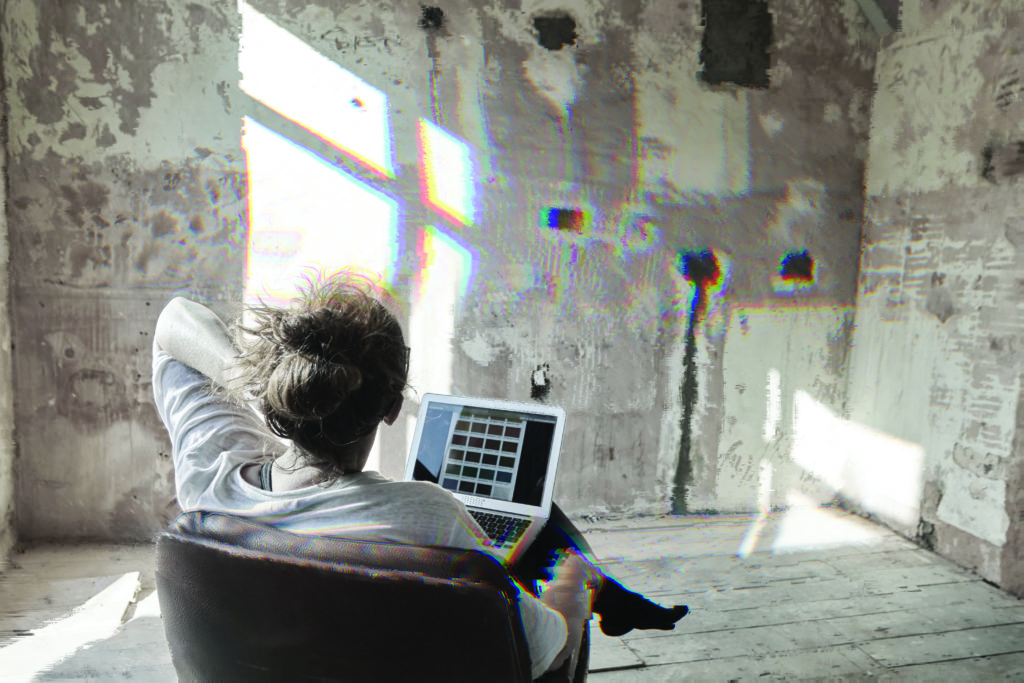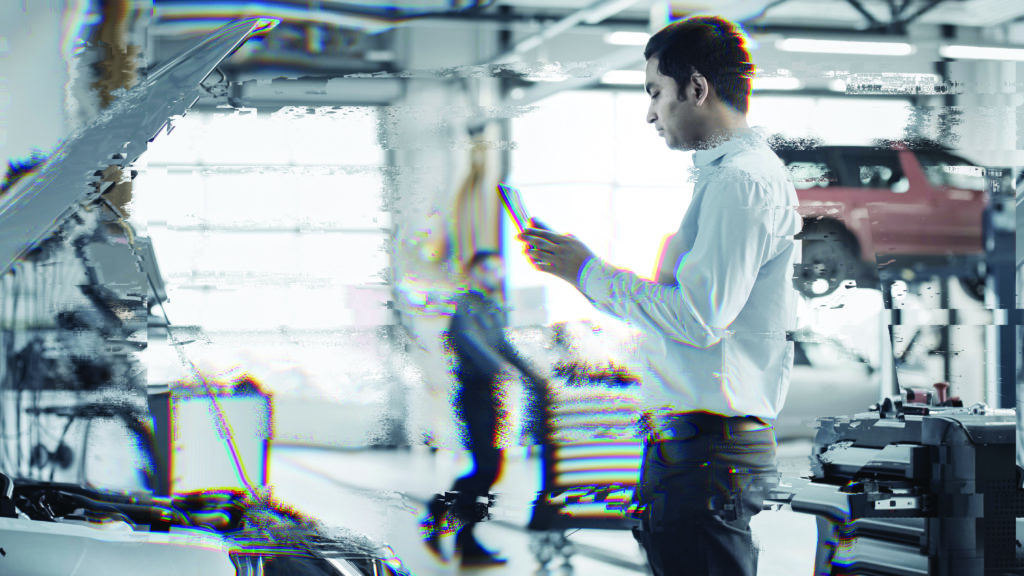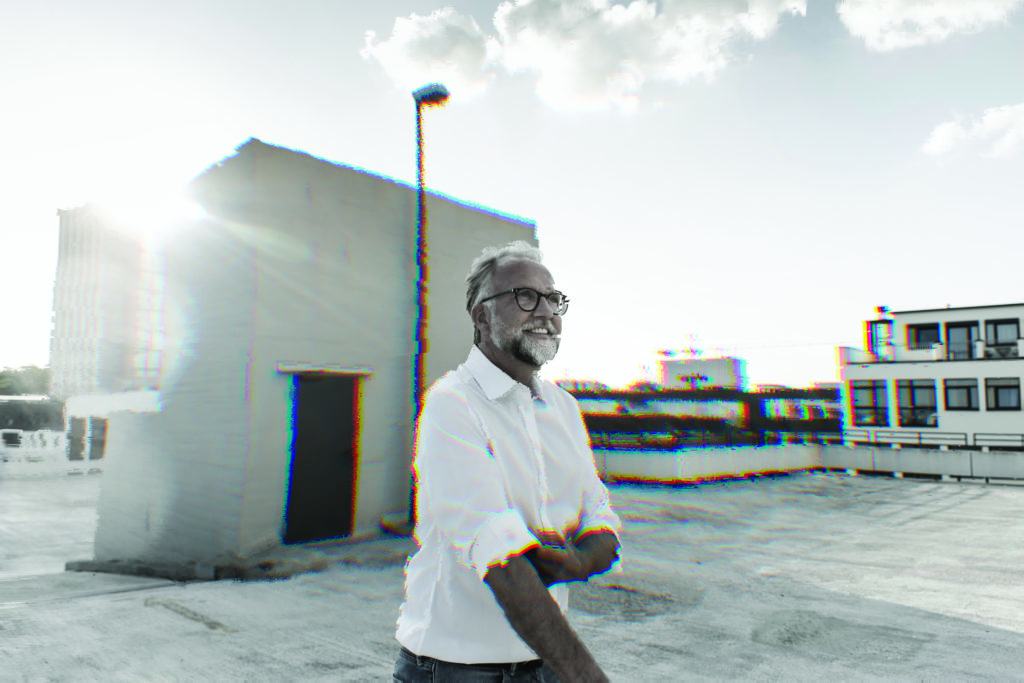Reboot and build a better world

Reboot
(/riːˈbuːt/ verb – restart or revive (a process or sequence); give fresh impetus to)
The global consequences of Covid-19 on our civilisation are profound, both geographically and in the way the pandemic has impacted – even revolutionised – various aspects of daily life. From consumer habits to family interactions, from the way we work to our philosophical approach to life itself – nothing has escaped the effects of the pandemic.
Economies have been turned upside down, with some sectors practically wiped out, while others are doing better than ever. The digital transformation has accelerated exponentially. We can be sure the new world will be nothing like many of us could have imagined.
One thing seems certain: once the vaccines have taken effect and life resumes its course, many brands and companies will be swept away, giving way to a new economic era where everything can and must be reinvented. Or, at the very least, adapted to new rules deemed unthinkable just one year ago.
We predict that there will be three decisive factors driving this huge reboot: Reset, Respawn & Restart.
Reset
(/riːˈsɛt/ verb -set again or differently)
Brands’ user experiences and their level of digitisation have evolved very rapidly. Sometimes digital channels were upgraded to meet the new requirements as part of a plan, but often it was all done in an emergency. The aim, though, was to become or stay relevant in a world of restricted movement.
Consumers had to reinvent their daily lives, adopting new ways of interacting with loved ones, working remotely or shopping. Even the most digitally averse would eventually be converted, taking advantage of the endless possibilities and unimagined benefits offered by digital.

Digital for a new reality
As the number of digital users has soared, their expectations have risen to a previously unimaginable level. All the wrong reasons for not investing in e-commerce, previously cited by organisations and brands, have suddenly been debunked and rejected for good: too expensive, not profitable enough, too dangerous for physical businesses, too off-putting for segments with low levels of digitisation. No-one dares to hide behind these flimsy excuses any longer. We don’t just need digital channels for a brief period, before things go back to normal. The public is unlikely to abandon brick-and-mortar businesses – especially those whose heart and soul are rooted in physical reality. But all channels of connection with the customer will have to become more complementary, coherent and efficient if they are to carry on offering high-quality user experiences. To accomplish this, even those who think of themselves as experts in this matter will have to start from scratch: users and competition will mean there are high expectations.
Respawn
(/riːˈspɔːn/ verb – (of a character in a video game) reappear after having been killed)
In a violent (even cruel) process that Darwin would have found fascinating, organisations and brands will experience a ruthless natural selection. Only the most adapted, experienced and best digitised of them, offering the most useful, effective and original user experiences, will survive – alongside start-ups born from the ashes (or boosted by the decline) of the victims of annus horribilis 2020. This will not only be about user experience. As teleworking becomes more commonplace, the geographical location of employees will no longer have the same importance. This means letting them work wherever they want: from their living room, on a tropical beach or maybe even deep in a forest – access to the web will be all that matters.

Global impact at all levels
In return, employers might be able to maximise the skills of employees based where wages are lower and social regulations more flexible. Since people are paid for their skills and not according to geographical criteria, so-called ‘intellectual’ work may experience a relocation similar to that of manual labour over the last forty years.
This new state of affairs will have incredibly broad and global repercussions, affecting many sectors of the economy, even entire markets. The current micro-economic impact of the pandemic will seem small in comparison with the macro-economic revolution that is about to sweep the world. This will have indirect consequences on mobility in cities, and on all tertiary dependent sectors, such as hotels, restaurants and shops in office districts. But also, on professional real estate and urban planning: entire cities are about to undergo major changes on a scale never imagined before.
The global economic balance will be altered and, with it, whole populations. Those who think they are safe because they were born in the right place at the right time, will see their privileges rapidly eroded in favour of countries where relocatable intellectual ‘labour’ costs less and whose standard of living will thus multiply considerably. Poor countries’ middle classes will grow and get richer, while those in rich countries will become mere shadows of their former selves.
Just as hard drives and locally installed software have been giving way to cloud storage and SaaS solutions, only a small proportion of the tertiary sector will remain locally based. What we think today is impossible to relocate may well be possible tomorrow or the day after tomorrow… and may even disappear entirely because it may become too expensive or simply obsolete.
Restart
(/riːˈstɑ:t/ verb – a new start or beginning)
All these radical changes in our societies, our economies, our lifestyles have already begun manifesting through user behaviours, journeys and expectations. Having wiped the slate clean, brands and companies that react quickly will gain a major competitive edge once effective vaccines open up the planet for good (well, until the next pandemic, which experts say is definitely coming sooner or later).

Seize the opportunity or disappear
For some sectors – such as luxury goods, professional real estate and office equipment – it will probably not be enough to be the strongest and most adaptable. Extinction may well strike indiscriminately. But for the survivors, life will carry on its course and we will then be able to reboot the world, the economy, companies, brands, experiences and so many other things, based on the new expectations of users. The opportunity to build a better world does not come along every day: we have to seize it, or disappear.
“Life will go back to normal and then we can reboot the world.” – Brice Le Blévennec, CEO




